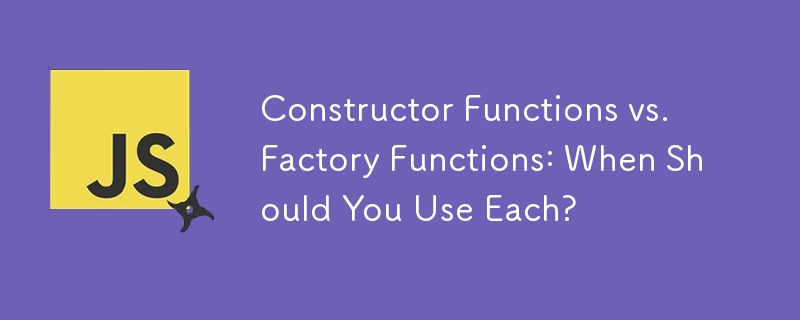

Understanding the Distinction Between Constructor Functions and Factory Functions in JavaScript
In the realm of JavaScript object creation, understanding the differences between constructor functions and factory functions is crucial. This distinction revolves around the underlying mechanisms and the approach used to create new objects.
Constructor Function:
A constructor function is invoked using the new keyword. This invocation triggers JavaScript to automatically create a new object, associate the this keyword within the function to that object, and return the newly formed object.
Example:
function Person(name, age) {
this.name = name;
this.age = age;
}Usage:
const person = new Person("John Doe", 25);Factory Function:
A factory function, on the other hand, resembles a regular function without the new keyword requirement. It returns a new instance of some object, but this object creation is not automated as is the case with constructor functions.
Example:
function createPerson(name, age) {
return {
name: name,
age: age
};
}Usage:
const person = createPerson("Jane Doe", 30);When to Utilize Each Type:
The decision between using a constructor function versus a factory function depends on the specific scenario.
Constructor functions are useful when:
Factory functions are employed when:
In summary, both constructor functions and factory functions serve as mechanisms to create objects in JavaScript. The appropriate choice depends on factors such as the desired object structure, inheritance requirements, and flexibility in object properties and behaviors.
The above is the detailed content of Constructor Functions vs. Factory Functions: When Should You Use Each?. For more information, please follow other related articles on the PHP Chinese website!




